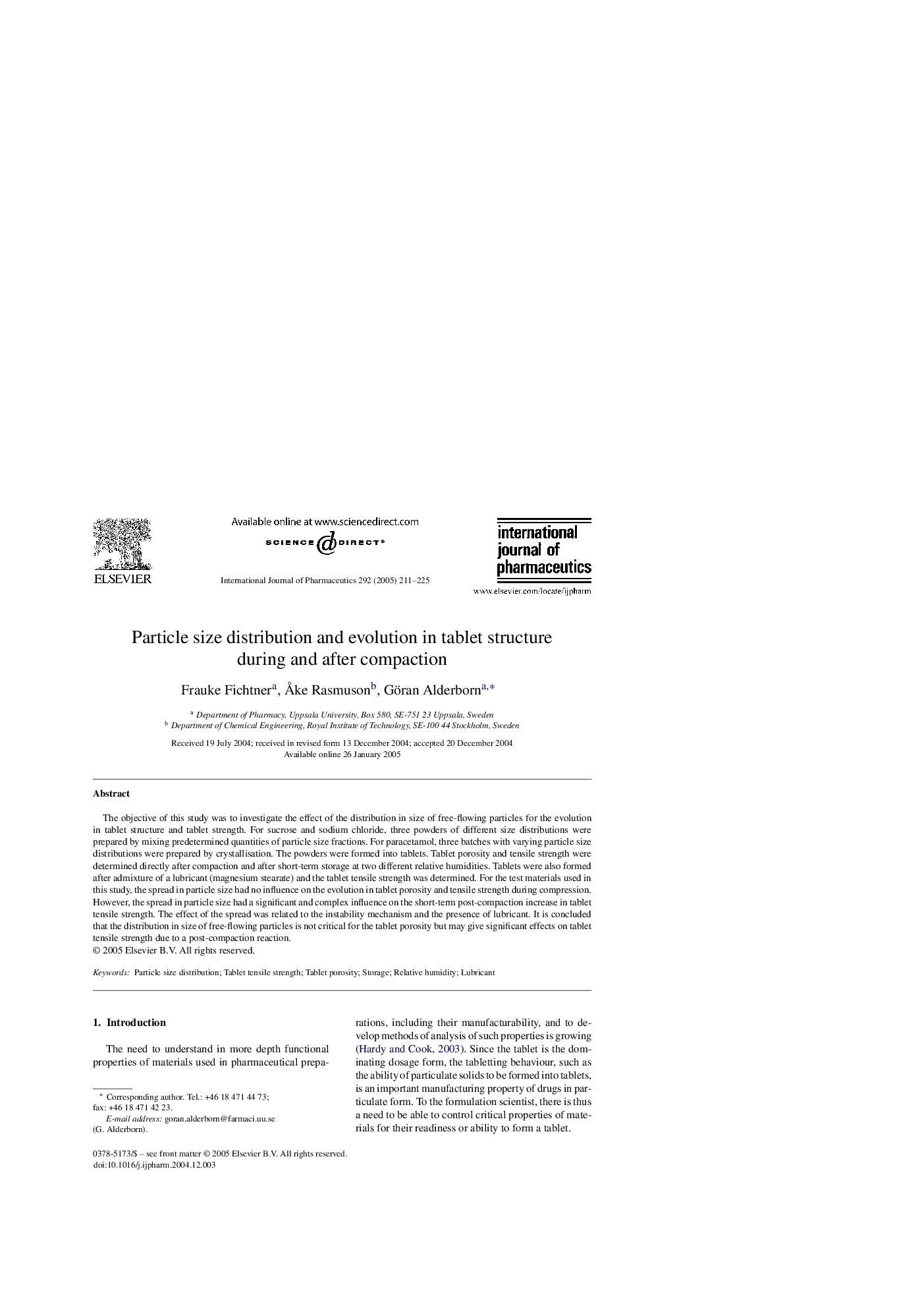| Article ID | Journal | Published Year | Pages | File Type |
|---|---|---|---|---|
| 9918916 | International Journal of Pharmaceutics | 2005 | 15 Pages |
Abstract
The objective of this study was to investigate the effect of the distribution in size of free-flowing particles for the evolution in tablet structure and tablet strength. For sucrose and sodium chloride, three powders of different size distributions were prepared by mixing predetermined quantities of particle size fractions. For paracetamol, three batches with varying particle size distributions were prepared by crystallisation. The powders were formed into tablets. Tablet porosity and tensile strength were determined directly after compaction and after short-term storage at two different relative humidities. Tablets were also formed after admixture of a lubricant (magnesium stearate) and the tablet tensile strength was determined. For the test materials used in this study, the spread in particle size had no influence on the evolution in tablet porosity and tensile strength during compression. However, the spread in particle size had a significant and complex influence on the short-term post-compaction increase in tablet tensile strength. The effect of the spread was related to the instability mechanism and the presence of lubricant. It is concluded that the distribution in size of free-flowing particles is not critical for the tablet porosity but may give significant effects on tablet tensile strength due to a post-compaction reaction.
Keywords
Related Topics
Health Sciences
Pharmacology, Toxicology and Pharmaceutical Science
Pharmaceutical Science
Authors
Frauke Fichtner, Ã
ke Rasmuson, Göran Alderborn,
